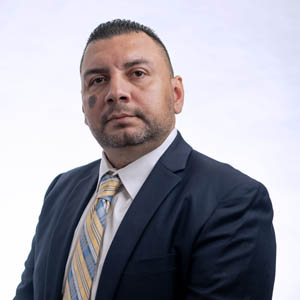Reginald Lewis: A billion-dollar lesson in ambition

In a time when victimhood often dominates headlines and success stories are too easily reduced to race or circumstance, I find myself drawn to the life of one man who defied both labels — Reginald F. Lewis, the trailblazing businessman behind “Why Should White Guys Have All the Fun?”
His journey is not just a story of Black excellence; it is a story of American excellence — one of grit, intellect and boldness that transcends color and era.
When I first encountered Lewis’s biography, I wasn’t looking for a hero. I was looking for an example of what relentless ambition looks like when faced with walls meant to contain it. What I found was a man who, in the 1980s, orchestrated one of the largest leveraged buyouts in history — the $985 million acquisition of Beatrice International Foods. At that time, billion-dollar deals were reserved for the corporate elite, a club where Black businessmen were almost nonexistent. Yet Lewis didn’t just enter that room — he owned it.
Born in Baltimore in 1942, Lewis came from modest beginnings. There were no shortcuts, no legacy privileges, no secret handshakes waiting for him. What he did have was vision and a refusal to accept invisibility. His family taught him dignity, discipline and determination — values that would define his character long before the world knew his name. He graduated from Virginia State College, went on to Harvard Law School and later founded TLC Group, a firm that specialized in corporate acquisitions.
But beyond the résumé and dealmaking, what struck me most was his mindset. Lewis never positioned himself as a victim of circumstance. Even when society underestimated him — or worse, dismissed him — he didn’t yield to resentment. He turned that energy into calculation, preparation and execution. His mantra could have easily been: If the door won’t open, build your own building.
And build he did. With Beatrice International, he became the first African American to own a billion-dollar global enterprise. He employed thousands across continents and managed a company that spanned more than 30 countries. To put that into perspective, in the late 1980s, this was before Silicon Valley culture, before social media entrepreneurs, before the global startup mindset we now celebrate. Lewis was decades ahead of the curve — operating on a scale even Wall Street had to respect.
Yet what makes his story timeless isn’t only the magnitude of his achievements — it’s the philosophy behind them. Lewis believed in merit, not excuses. He believed that the rules of business applied equally to everyone willing to master them. He didn’t need affirmation; he needed performance.
In that sense, Lewis was not just a Black businessman succeeding in a white-dominated world — he was an American capitalist redefining what success looked like.
It’s also important to understand the title of his book, “Why Should White Guys Have All the Fun?,” in its proper spirit. It was not a demeaning or divisive statement. It was an inspiring and appropriate question for its time — a challenge to those who believed opportunity belonged only to a few. Lewis’s question wasn’t born of anger or resentment; it was born of determination.
It wasn’t a victim narrative — it was a victory mindset. It was his way of saying: If success exists, it’s available to all who are prepared to claim it.
Reading his book today, in 2025, feels more relevant than ever. We live in an era obsessed with identity, where many conversations about opportunity are framed around grievance. But Lewis’s legacy reminds us that victory and victimhood cannot coexist. His life wasn’t about proving others wrong; it was about proving himself right. That distinction matters.
As an individual inspired by Lewis, I see in him the blueprint of a modern visionary — one who combined the precision of a lawyer, the courage of a pioneer and the tenacity of a fighter. He leveraged knowledge as currency, saw deals as pathways to independence and understood that ownership was the ultimate form of empowerment.
Lewis’s influence also extends far beyond race or economics. His story challenges all of us — Black, white, Latino, Asian, anyone — to think bigger about what’s possible when we stop waiting for validation and start creating our own platforms. He showed that equality is not achieved through entitlement but through excellence.
There’s also something deeply human in his story. For all his brilliance, Lewis was known for his humility in private moments, his loyalty to family and his generosity to causes he cared about. When he donated millions to Harvard Law School, it wasn’t just philanthropy — it was a statement: that access to education and opportunity must be multiplied, not hoarded.
Lewis passed away at just 50 years old, leaving behind an unfinished autobiography that would later become “Why Should White Guys Have All the Fun?” But perhaps the title was never meant to provoke — it was meant to awaken. It was a question to America, not an accusation. It was a call to action for anyone willing to put in the work, to seize their place at the table of opportunity.
If I could speak to him today, I’d simply say this: Thank you. Thank you for showing that greatness is not determined by how the world sees you, but by how you see yourself. Thank you for cutting through color and race to reach the universal truth of ambition — that success belongs to those who prepare for it.
In 2025, with the economy in flux and a new generation searching for meaning beyond metrics, Lewis’s legacy offers clarity: the measure of a leader is not what they inherit but what they build. His story is not a history lesson — it’s a mirror. It reflects what America can be when courage meets opportunity.
Lewis didn’t ask for permission to dream. He just did the work. And that’s why, nearly four decades later, his billion-dollar mindset still matters — not just for Black America, but for America, period.

Antonio Santos is a veteran of Puerto Rico’s hospitality and tourism industries, with more than three decades of experience in service management and business development. In 2024, he ran for the Puerto Rico House of Representatives representing San Juan’s District 1 under the conservative Proyecto Dignidad party. He advocates for entrepreneurship and economic development based on small-government principles and self-sufficiency, combining practical industry experience with a focus on sustainable growth and opportunity across the island.




